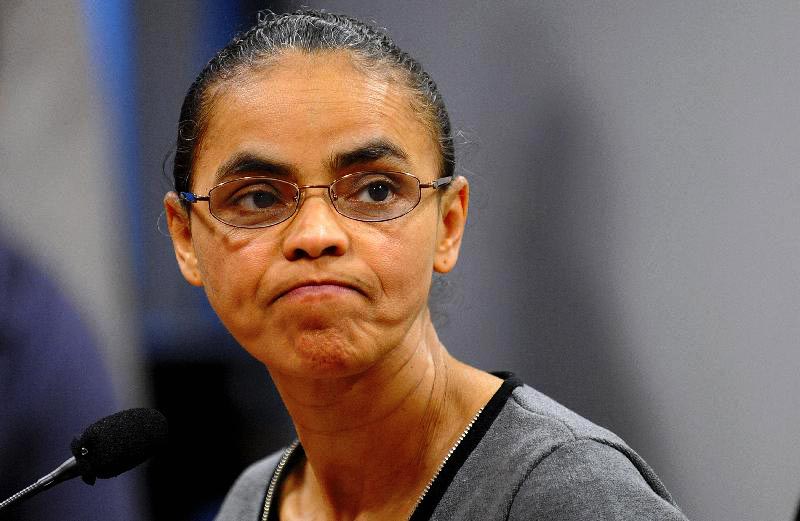Brazil's Political Transformation
Brazilian presidential candidate Marina Silva

NEW DELHI: With the Brazilian Presidential elections around the corner, many hope that the country is poised for a political transformation. Marina Silva, 56, is on the verge of becoming Brazil’s next president. Her entry to the presidential race, after the death of Brazilian Socialist Party candidate Eduardo Campos who had selected her to be his Vice President, has seen support for her party triple.
Recent polls show Silva and Rousseff, the current Brazilian President belonging to the Worker’s Party, each capturing about a third of the vote. Aécio Neves of the center-right Brazilian Social Democratic Party (PSDB) is expected to come in third, receiving about 15 percent of the vote. In a second round simulation conducted by the Brazilian Institute of Public Opinion and Statistics (IBOPE), Silva is likely to receive 46 percent of the vote, compared to Rousseff’s 39 percent.
As the Washington Post reports, “if this mixed-race [Silva’s mother is white and father is a mix of black and Brazilian Indian ancestry] activist from deep in the Amazon, who has a radical past in liberation theology, did become president, it would be a major step toward equality in a country still largely run by a privileged, white elite.” Like Modi, Silva has come to represent a change in the country’s political landscape.
Silva’s rise to power began with the most humble origins, in a country where politics is dominated by a privileged elite. At 16, Silva was illiterate and lost both her parents, and went on from working as a maid to teaching herself to read and write, becoming a graduate, teacher and grassroots campaigner against deforestation. Her move into politics was alongside beloved former President Luiz Inácio Lula da Silva, with whom she helped turn the Worker’s Party into a national force.
Unsurprisingly, Silva’s rise to power is located in the economic context of Brazil. After a decade of encouraging growth, Brazil’s economy has stalled. The country officially went into recession in August, with inflation at the government’s 6.5 percent ceiling. Brazil has been witness to mass demonstrations, with millions of protesters taking to the streets and protesting against rising inflation, high taxes, poor government services and rampant corruption.
However, Silva’s past as a fundamentalist has many sections of Brazilian society worried. Silva is a deeply religious Evangelical Christian, with her critics pointing to her religious beliefs as the reason leading to her differing from the Brazilian Socialist Party’s (PSB) position on issues such as abortion, same-sex civil unions and marriages, and the separation of Church and State.
Silva has already become embroiled in controversies regarding a political-religious tug of war. Silva, at her election platform debate, began with saying that she would introduce into law a constitutional amendment that would legalize same-sex marriage, saying that the move was to ensure a “socially just country.” This represented her party position and Campos’ political position before his death. However, hours later, following a critical statement by influential pentecostal pastor Silas Malafaia that said that “Silva’s political platform is a shameful defense of the gay agenda,” Silva reneged on her position. Her campaign released a statement that said that the media “misinterpreted” her proposal. “The real goal of the candidate’s proposal was to guarantee the rights to civil unions for same-sex couples,” the campaign said, referring to a more basic measure that would bring certain benefits to same-sex couples but would not amend the constitution nor carry constitutional protection.
Silva has differed from her party line on other religiously sensitive issues as well, including abortion. Whilst the PSB has fought for more freedom and choices for women, focussing on reproductive and sexual health rights, Silva has said that she is “personally not in favour of abortion.” Her campaign, instead, chooses to focus on sexual education and policies to prevent unwanted pregnancies, reiterating that she will not attempt to Brazil’s current laws on abortion, which makes the procedure legal only in cases of rape, risk to the mother’s health and fetal anencephaly.
Being an pentecostal evangelical, Silva’s rapid rise in the polls is attributable in large part to support among Brazilian evangelicals. This religious-backed support brings with it pressures to conform to the faith’s politically conservative social and moral values.



